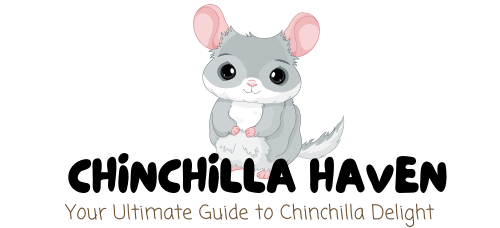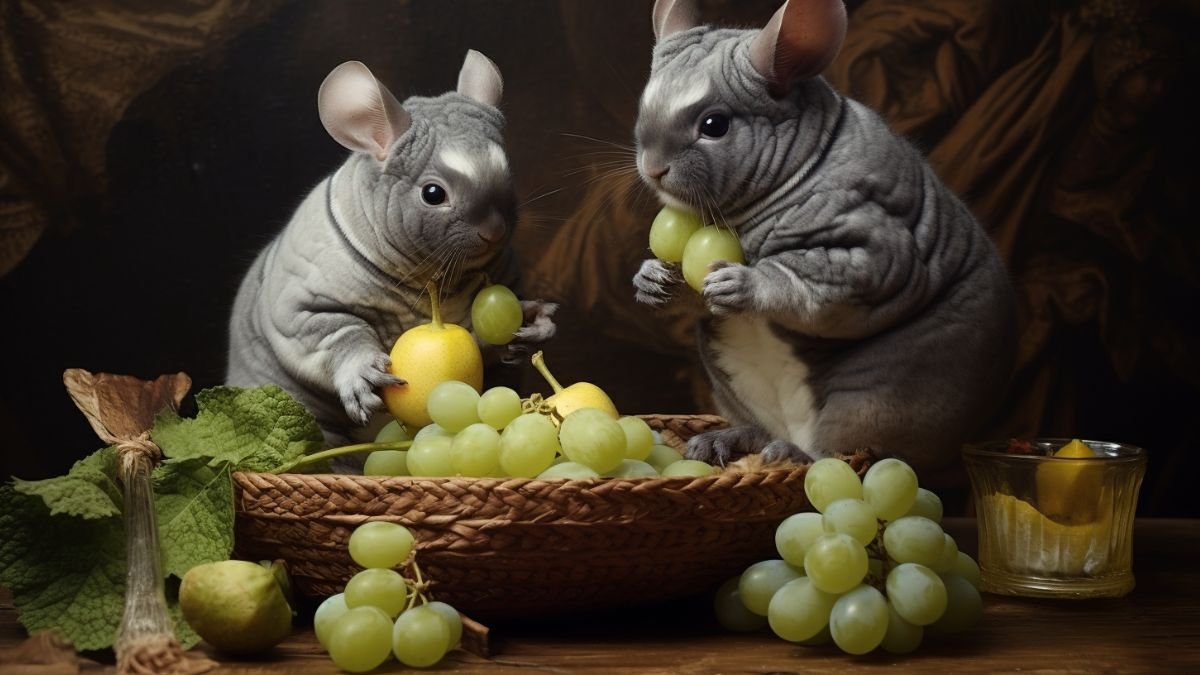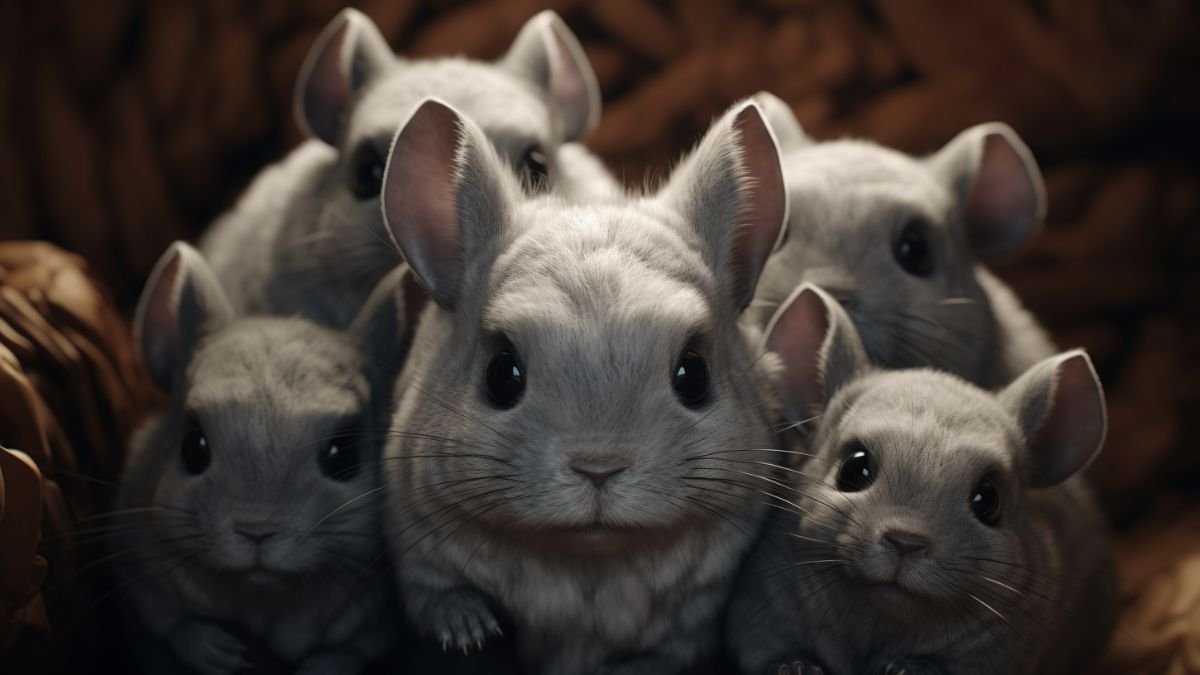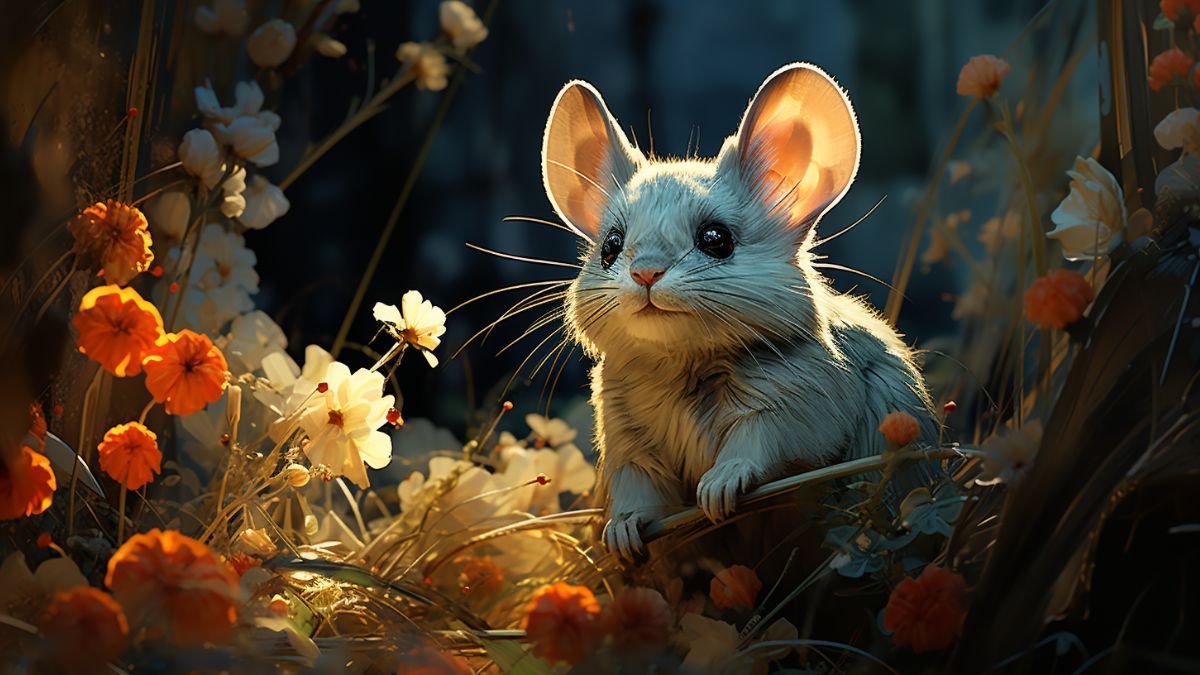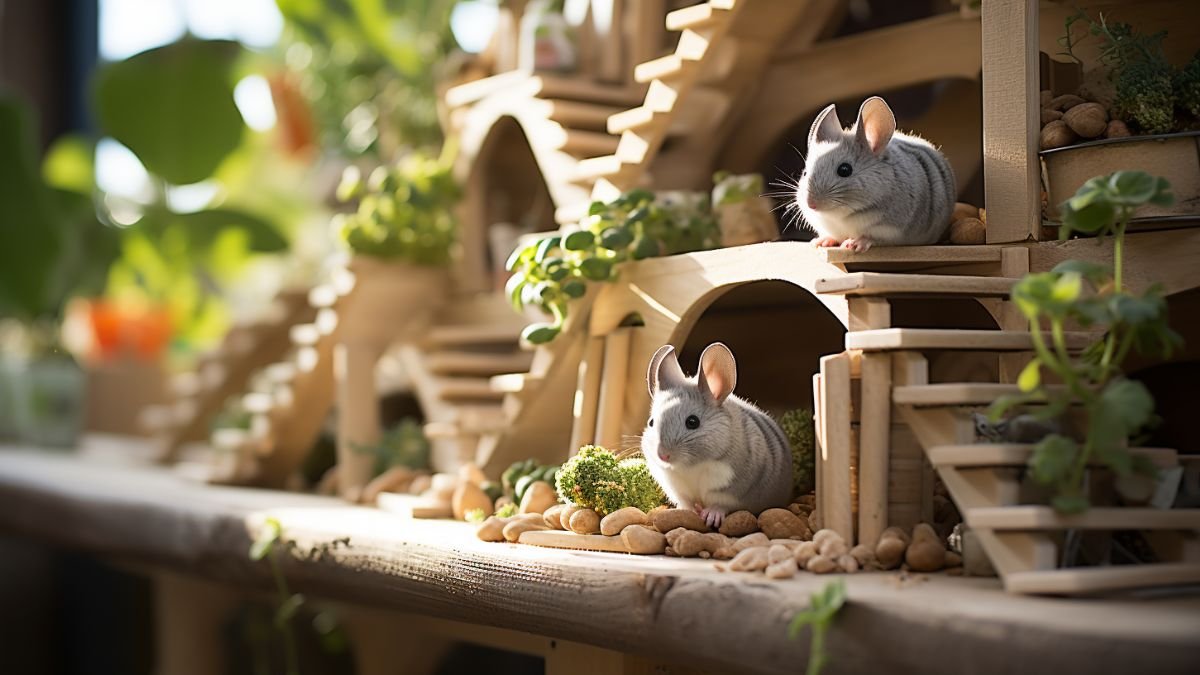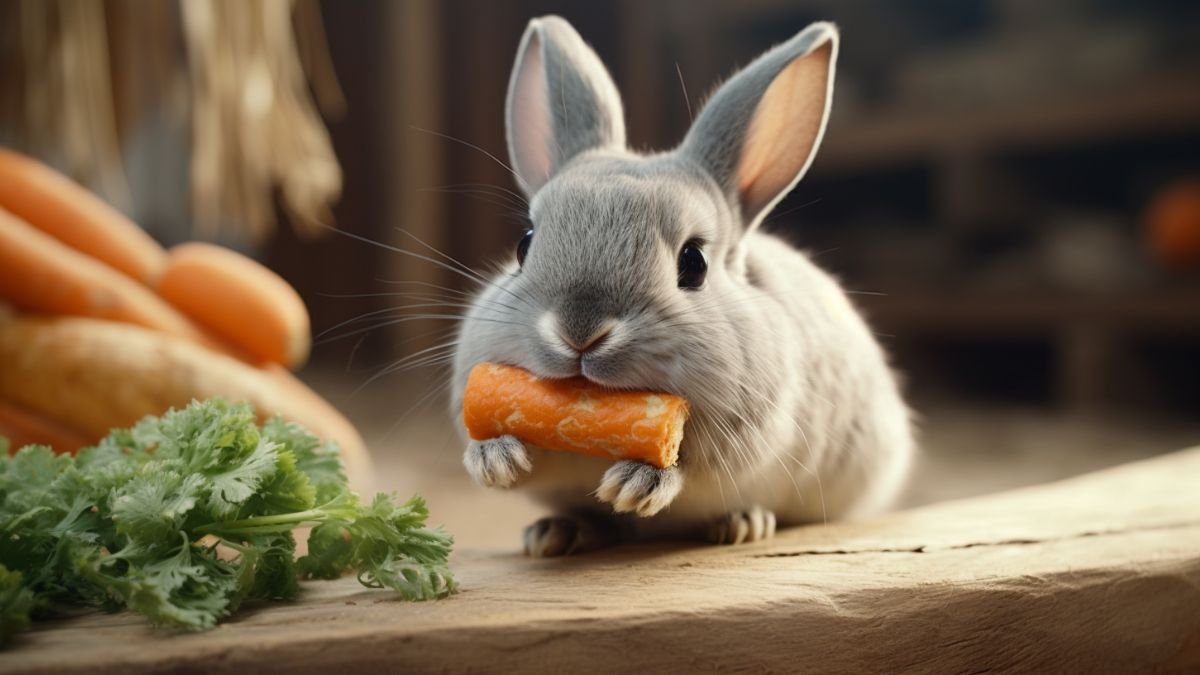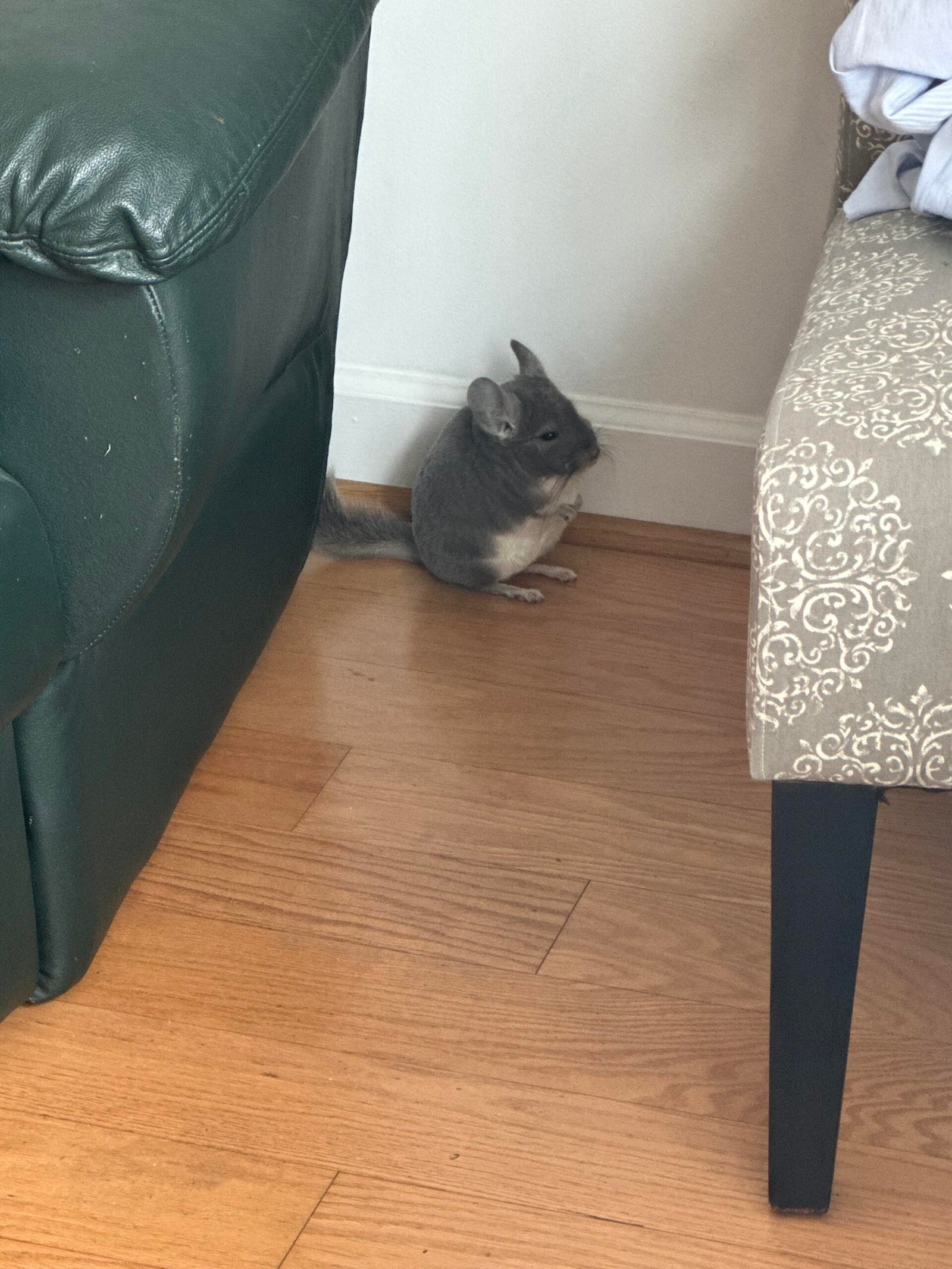If you have a chinchilla at home, you probably want the best for your furry friend. You might be wondering, “Can chinchillas eat hamster food?” It’s a common question because sometimes you might have both pets or just want to save time and money.
But is hamster food safe and healthy for your chinchilla? What could happen if you feed them the wrong diet? Keep reading to find out everything you need to know to keep your chinchilla happy and healthy.
Chinchilla Diet Basics
Chinchillas need a special diet to stay healthy. Their digestive system is very sensitive. Feeding them the right food helps avoid stomach problems.
Chinchilla food should be high in fiber and low in fat. Hay is a key part of their daily diet. It keeps their teeth healthy and supports digestion.
Essential Nutrients For Chinchillas
Fiber is the most important nutrient for chinchillas. It aids digestion and keeps their gut working well. Protein is needed but in small amounts. Too much fat or sugar can cause health issues.
Safe Foods For Chinchillas
Timothy hay is the best hay for chinchillas. Pellets made for chinchillas contain balanced nutrients. Fresh water should always be available. Treats like dried rose hips or small pieces of apple can be given sometimes.
Foods To Avoid
Chinchillas should not eat sugary or fatty foods. Avoid nuts, seeds, and dried fruit. Human food and hamster food are not safe. These can cause serious health problems.
Hamster Food Ingredients
Hamster food ingredients vary widely depending on the brand and type. These ingredients are designed to meet the dietary needs of hamsters. Understanding these ingredients helps decide if hamster food suits chinchillas.
Hamster food usually includes seeds, grains, nuts, and dried fruits. These ingredients provide energy and nutrients for hamsters. Some mixes contain added vitamins and minerals too.
Common Seeds And Grains In Hamster Food
Hamster food often has sunflower seeds, millet, and oats. These seeds and grains are high in fat and calories. Chinchillas need low-fat diets, so these ingredients may not be ideal.
Nuts And Dried Fruits
Nuts like peanuts and dried fruits such as raisins appear in hamster mixes. These are tasty for hamsters but contain sugars and fats. Chinchillas have sensitive digestive systems, so these can cause problems.
Added Vitamins And Minerals
Some hamster foods include added vitamins like vitamin E and minerals like calcium. These help support hamster health. Chinchillas require different nutrient levels, so hamster food might lack necessary nutrients.
Nutritional Needs Of Chinchillas
Chinchillas need a special diet to stay healthy. Their digestive system is very sensitive. They require food high in fiber but low in fat and sugar. Proper nutrition helps chinchillas maintain energy and good digestion.
These animals eat mostly hay and pellets made for their species. Fresh water must always be available. Treats should be given carefully and in small amounts only.
Fiber Requirements
Fiber is essential for chinchillas. It helps their gut work well. Hay is the best source of fiber. Without enough fiber, chinchillas can get sick. This makes fiber a key part of their diet.
Protein And Fat Levels
Chinchillas need moderate protein and very low fat. Too much fat can cause health problems. Their regular food pellets are designed with the right balance. Foods with high fat or protein are not suitable.
Vitamins And Minerals
Chinchillas require specific vitamins and minerals. Their pellets provide these nutrients in correct amounts. Foods not made for chinchillas may lack essential vitamins. Missing nutrients can lead to illness or poor growth.
Comparison Of Chinchilla And Hamster Foods
Chinchillas and hamsters are small pets with different diets. Their foods have unique ingredients and nutritional needs. Understanding these differences helps keep each pet healthy and happy.
Chinchillas need a diet high in fiber and low in fat. Hamsters require more protein and fats in their food. Feeding the wrong food can cause health problems for both animals.
Ingredients In Chinchilla Food
Chinchilla food mainly has hay, pellets, and dried herbs. It is low in sugar and fat. The food supports their sensitive stomach and strong teeth. High fiber content helps their digestion work well.
Ingredients In Hamster Food
Hamster food contains seeds, grains, nuts, and dried fruits. It has more fats and proteins than chinchilla food. These ingredients give hamsters energy for their active lifestyle. Some foods may have added vitamins and minerals.
Nutritional Differences
Chinchillas need more fiber and less fat. Hamsters need balanced protein and fat amounts. Too much fat or sugar can harm chinchillas. Hamsters can handle higher fat levels but still need variety.
Why You Should Avoid Feeding Hamster Food To Chinchillas
Hamster food has too much fat and sugar for chinchillas. This can cause digestion problems and weight gain. Chinchillas may get sick from eating seeds and nuts. Always give chinchillas food made for their species.
Risks Of Feeding Hamster Food To Chinchillas
Feeding hamster food to chinchillas can cause several health risks. Their dietary needs differ greatly. Hamster food often contains ingredients harmful to chinchillas. Even small amounts can upset their digestion and wellbeing.
Chinchillas have sensitive stomachs. Incorrect food can cause serious problems. Understanding these risks helps protect your pet’s health.
Digestive Issues From Inappropriate Ingredients
Hamster food usually has seeds, nuts, and dried fruits. These are hard for chinchillas to digest. Their stomachs are not built for oily or sugary foods. Eating these can cause diarrhea or bloating. Long-term feeding can lead to severe digestive disorders.
Unbalanced Nutritional Content
Chinchillas need high fiber and low fat diets. Hamster food contains more fats and sugars. This imbalance can lead to obesity and poor health. Lack of proper fiber affects their teeth and gut health. Feeding hamster food regularly disrupts their nutrition.
Risk Of Toxic Additives
Some hamster mixes include artificial colors and preservatives. These additives can be toxic to chinchillas. Their bodies cannot process these chemicals well. Exposure may cause allergic reactions or poisoning. Always avoid foods with unknown additives.
Signs Of Poor Nutrition In Chinchillas
Chinchillas need the right food to stay healthy and active. Poor nutrition can cause many health problems. Spotting the signs early helps keep chinchillas safe and happy.
Chinchillas cannot eat the same food as hamsters. Their diet needs are very different. Feeding the wrong food may lead to poor nutrition. This harms their growth and wellbeing.
HTML Syntax:Poor Coat Condition
Poor Coat Condition
A dull or patchy coat shows poor nutrition. Chinchillas have thick, soft fur. If fur looks rough or falls out, nutrition might be the problem. Healthy chinchillas have shiny, full fur.
HTML Syntax:Weight Loss or Poor Growth
Weight Loss Or Poor Growth
Chinchillas should keep a steady weight. Losing weight or growing slowly signals poor diet. Hamster food may lack important nutrients chinchillas need. Proper food supports healthy growth and body weight.
HTML Syntax:Digestive Problems
Digestive Problems
Chinchillas need fiber for good digestion. Signs of problems include diarrhea or constipation. Hamster food often lacks enough fiber. Digestive issues can cause pain and illness.
HTML Syntax:Low Energy and Lethargy
Low Energy And Lethargy
Chinchillas are active pets. Poor nutrition leads to tiredness and low activity. Eating the wrong food may cause weakness. Proper diet helps chinchillas stay lively and playful.
Safe Treats For Chinchillas
Chinchillas need treats that are safe and healthy. Their digestive systems are delicate. Feeding the wrong food can cause health problems. Choose treats that support their well-being. Treats should be given in small amounts. Natural, simple ingredients are best for chinchillas.
Fruits Suitable For Chinchillas
Small pieces of apple or pear are safe treats. Avoid citrus fruits as they upset the stomach. Dried fruits like raisins can be too sugary. Fresh fruits must be given in moderation.
Vegetables Chinchillas Can Enjoy
Carrots and spinach are good treat options. Avoid starchy vegetables like potatoes. Leafy greens provide fiber and nutrients. Always introduce new vegetables slowly.
Herbs And Flowers As Treats
Rose hips and chamomile flowers are safe. They add variety without harm. Avoid plants with chemicals or pesticides. Only use organic or pet-safe herbs.
Specialty Chinchilla Treats
Timothy hay cubes and wood chews are excellent. They help wear down teeth and provide fiber. Avoid sugary or fatty commercial treats. Natural options keep chinchillas happy and healthy.
Tips For Choosing Chinchilla Food
Choosing the right food for your chinchilla is very important. Their diet affects their health and happiness. Not all small pet foods are safe for chinchillas. Some foods can cause stomach problems or other health issues.
Chinchillas need a special diet with the right balance of nutrients. Understanding what to feed them helps keep them active and strong. The following tips help you pick the best food for your chinchilla.
Check The Ingredients List Carefully
Look for high-quality hay or pellets made specifically for chinchillas. Avoid foods with added sugars, nuts, or dried fruits. These can harm their digestion. The ingredients should be simple and natural.
Choose High Fiber Content
Fiber is key for a chinchilla’s digestive system. Food with plenty of fiber supports healthy gut function. Timothy hay is a great source of fiber. Make sure the pellets or mixes contain enough fiber too.
Avoid Seeds And Nuts
Seeds and nuts are common in hamster food but bad for chinchillas. These ingredients are too fatty and can cause weight gain or illness. Stick to seed-free options to keep your chinchilla healthy.
Opt For Pellets Made For Chinchillas
Pellets designed for chinchillas offer balanced nutrition. They include the right vitamins and minerals. Feeding pellets made for other rodents can lead to nutritional gaps or excesses.
Fresh Hay Should Be A Daily Staple
Hay is the base of a chinchilla’s diet. It helps wear down their teeth and aids digestion. Always provide fresh hay alongside pellets. This keeps them chewing and healthy.
Consulting A Veterinarian
Consulting a veterinarian is essential before feeding chinchillas hamster food. Each animal has unique dietary needs. A professional can guide you on safe feeding practices.
Chinchillas have sensitive digestive systems. Small dietary changes can cause health problems. A vet can help avoid risks and suggest better options.
Understanding Chinchilla Nutrition
A veterinarian explains what chinchillas should eat daily. They highlight foods that support good digestion and health. Hamster food often lacks necessary fiber for chinchillas.
Risks Of Feeding Hamster Food
A vet points out dangers of hamster food for chinchillas. Ingredients might be harmful or cause digestive upset. Some seeds and nuts in hamster food are unsafe.
Customizing Diet Plans
Veterinarians create diet plans based on individual chinchillas. They recommend pellets, hay, and treats that fit nutritional needs. Personalized advice prevents feeding mistakes.
Monitoring Health Changes
After diet changes, vets monitor chinchilla health closely. They watch for signs of illness or discomfort. Early detection helps keep chinchillas healthy and happy.
Frequently Asked Questions
Can Chinchillas Safely Eat Hamster Food?
Chinchillas should not eat hamster food regularly. It lacks the right nutrients and can harm their digestion.
What Are The Risks Of Feeding Hamster Food To Chinchillas?
Hamster food may cause stomach upset, obesity, and nutrient deficiencies in chinchillas.
How Is Chinchilla Food Different From Hamster Food?
Chinchilla food is high in fiber and low in fat, while hamster food is higher in fat and seeds.
Can Occasional Hamster Food Harm A Chinchilla?
A small accidental nibble is usually okay, but avoid making it a habit.
What Should Chinchillas Eat Instead Of Hamster Food?
Chinchillas need hay, specially made pellets, and fresh water for a healthy diet.
Why Do Chinchillas Need High-fiber Food?
High fiber helps chinchillas digest food properly and keeps their teeth healthy.
Are Seeds In Hamster Food Bad For Chinchillas?
Seeds are high in fat and can cause weight gain and health problems in chinchillas.
How To Choose The Best Food For Chinchillas?
Pick pellet food made for chinchillas and fresh hay. Avoid treats with sugar or fat.
Conclusion
Chinchillas need special food made just for them. Hamster food may not have the right nutrients. Feeding chinchillas hamster food can cause health problems. Always choose food designed for chinchillas’ needs. Keep their diet safe and balanced. This helps them stay happy and healthy.
Remember, their stomachs are sensitive and unique. Proper food supports their energy and fur quality. Treat your chinchilla with care and attention. A healthy diet means a longer, happier life.
